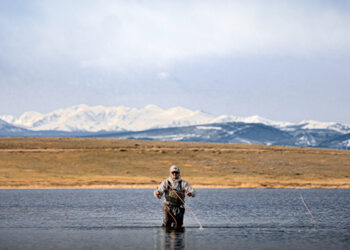This issue, Corey Seemiller, a professor of Leadership Studies in Education and Organizations at Wright State University, shares advice on Gen Z.
Can you share a brief background of how you got to where you are today in terms of being a Gen Z expert?
CS: I’ve been studying Gen Z since 2013 when the first cohort entered college. My interest came from my observation that the students in the Fall 2013 cohort were different than ones I interacted with previously. While tabling to recruit for our four-year leadership program, I noticed the students that year seemed eager to make a difference, figure out their passions and connect with others who shared their values. Since then, I have conducted five original studies and found much of what I noticed then could be explained by data from the studies.
What have you noticed to be the top wellness/mental health/fitness needs of Gen Z?
CS: This generation has high numbers with diagnosed anxiety and depression, along with high levels of loneliness and stress. Common methods to both prevent and cope with mental health issues seem to be more absent overall with this generation. Many don’t get enough sleep, are more sedentary than those in previous generations when they were the same age, crave connection and friendship, and are inundated with “doom and gloom” from the news that weighs them down. Stress reduction is possible, but the more effective focus would be on helping them develop coping skills and habits.
How can campus rec professionals best connect with and engage this generation?
CS: Find out the ROI for Gen Z for each of the services you offer. For example, intramurals provides connection with others who share a similar hobby; fitness goal challenges can be motivating for many — not competing with other students, though — and stress management options like biofeedback and massages can be helpful.
What challenges are there in facilitating socialization with Gen Z, and what are some ways to overcome these?
CS: They may be reluctant to come out on their own. Encourage them to bring a friend to work out, to a class, to an intramural game, etc.
For those looking to make friends, host small experiences where they can get to know others — exercise classes may be difficult to do that with, but a group hike might not be.
Bring fitness to them in their residence halls and classes. This doesn’t mean having a satellite workout area in a residence hall but perhaps a collaborative program.
Work with professors to host a stress management session in class during finals week. The key will be to consider the context of the students on each campus as well as the feasibility of campus rec to offer certain programs, and then come up with plenty of unique ideas to get students out to participate.
If one thing doesn’t work, try something else. Ask Gen Zers themselves what would help increase their engagement.
Anything else to add?
CS: Generally, Gen Zers care about their health and fitness. But, some may be too nervous to wander over to campus rec. Consider other ways to garner participation that may not even involve them having to go to campus rec. Bring the programming to them. Also, get them connected in a community of others who like fitness, sports, etc. They will likely want to connect with them through fitness. To increase the numbers of those who show up by themselves to work out or play a sport, consider tapping into their drive for accomplishment by offering challenges, badges, milestones, etc.










